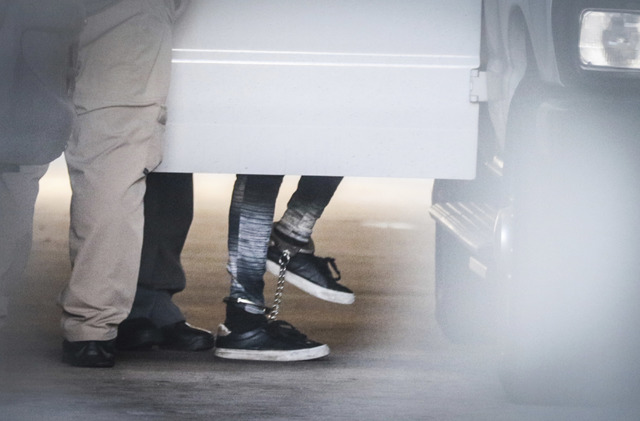Jury returns to start deciding Dylann Roof’s fate: life in prison or execution
CHARLESTON, S.C. — Convicted Charleston church shooter Dylann Roof did not ask jurors to spare his life or for the death penalty during his brief opening statement at his sentencing trial.
The soft-spoken Roof told jurors Wednesday that there is nothing wrong with him psychologically and that his lawyers forced him to go through two competency hearings.
He stood at a podium and slowly and calmly spoke to the jurors, glancing occasionally at notes in front of him. He told jurors there wasn’t anything he was trying to keep secret from them and said he was better at embarrassing himself than anyone else.
Roof’s lawyers indicated he wanted to represent himself because he was worried they might present embarrassing evidence about him or his family.
Federal prosecutors told the jury Wednesday that white supremacist Roof deserves to be executed for the hate-fueled shooting deaths of nine black parishioners during a church Bible study in 2015.
Roof, 22, was convicted by the same jury last month of all 33 federal counts of hate crimes resulting in death, obstruction of religion and firearms charges against him for the massacre at Emanuel African Methodist Episcopal Church in Charleston.
Any of the murders would justify the death penalty, Assistant U.S. Attorney Nathan Williams said in his opening statement.
But Roof’s months of planning, his lack of remorse and his motivation for carrying out the crime that shocked the nation make him even more worthy of the most severe punishment available, the prosecutor said.
“He killed them because of the color of their skin, because he thought they were less than people,” Williams said.
Roof, who wore a gray sweater and shuffled papers at the defense table, confessed to killing the parishioners who had welcomed him to their Bible meeting and had their eyes closed in prayer when he opened fire.
“He spent 40 minutes looking at them,” Williams said. “He preyed upon that vulnerability after he had a chance to observe it.”
Roof will serve as his own lawyer for the sentencing phase of his federal trial after U.S. District Judge Richard Gergel ruled on Monday that he was mentally fit to do so.
Roof’s strategy is unclear. He told the court he would give an opening statement but call no witnesses and offer no evidence, a revelation that prompted the lawyers who represented him during the guilt phase to question his competency.
Roof sought to represent himself in order to keep the jury from hearing mental health evidence about him, defense counsel David Bruck said in court documents. Such evidence is meant to sway a jury toward a sentence of life in prison without possibility of parole instead of the death penalty.
ANOTHER TRIAL THIS YEAR
Roof faces a second death-penalty trial early this year in state court, where he’s charged with nine counts of murder. A state judge is ordering 600 prospective jurors to report to the Charleston County Courthouse on Jan. 17 for initial screening. His order says the trial will begin on or after Jan. 30. It’s not clear when the federal case will wrap up. For now, Roof has attorneys representing him in the state case.

















